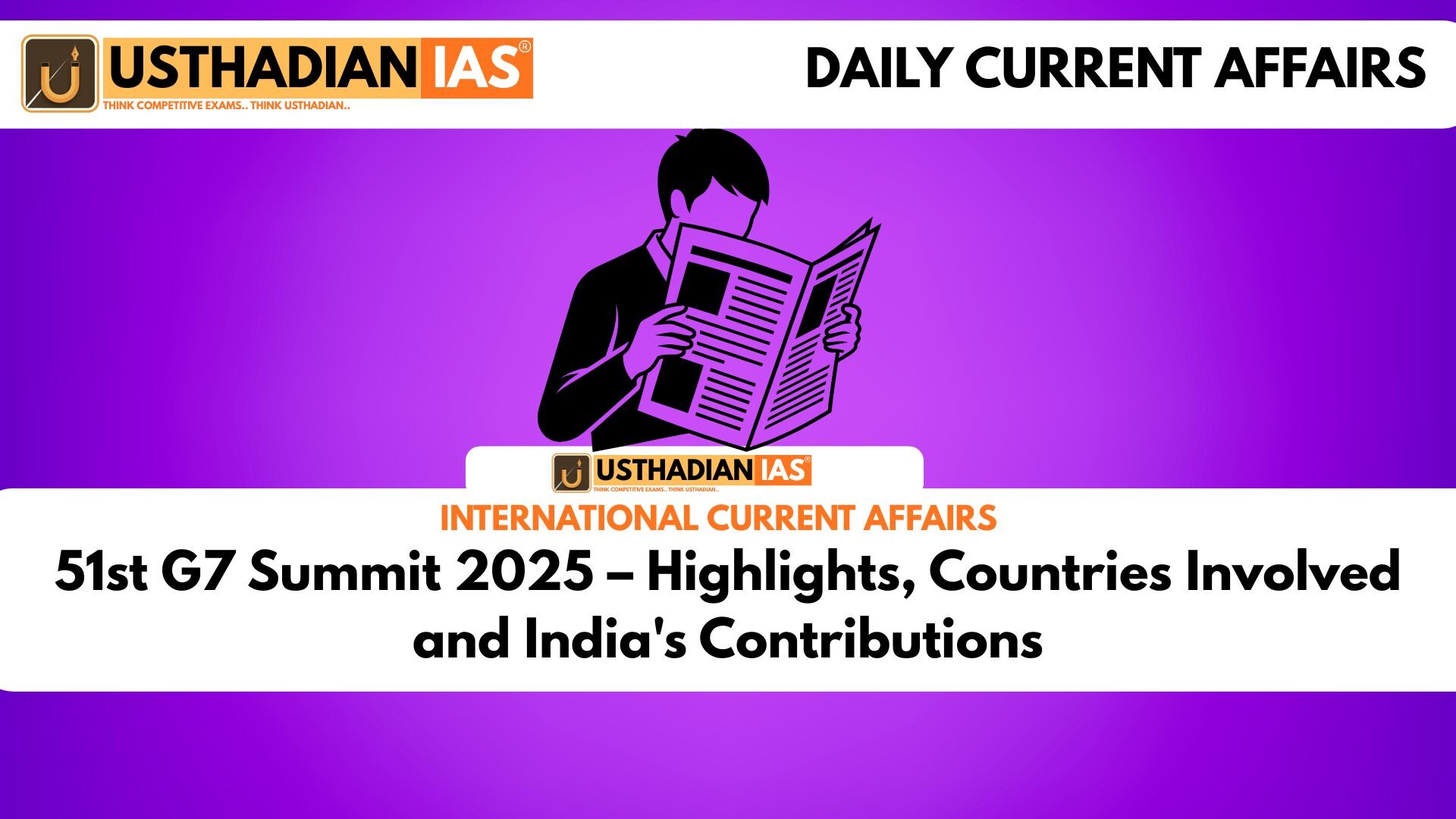Global leaders meet in Canada
51st G7 Summit 2025 – Highlights, Countries Involved and India’s Contributions: The 51st G7 Summit 2025 took place in the peaceful town of Kananaskis, Alberta, Canada, from June 15 to June 17. Hosted by Canadian PM Mark Carney, the summit had three key goals: global safety, energy resilience, and digital transformation. As expected, the event saw heated debates, strategic cooperation, and some political tensions.
G7 and invited countries
The G7 countries—Canada, France, Germany, Italy, Japan, the UK, and the US—were joined by the European Union and invited nations like India, Australia, Brazil, Mexico, South Africa, South Korea, and Ukraine. India, led by PM Narendra Modi, played an active role across discussions.
India’s evolving presence
India’s presence at the G7 has grown stronger. This year, it stressed inclusive digital models by promoting Aadhaar and UPI. PM Modi pushed for responsible AI with tools like deepfake watermarking to stop misinformation. He also discussed development finance, terrorism, and support for the Global South.
Security concerns in the Middle East
Just as the summit began, the Israel–Iran conflict escalated. G7 nations supported Israel’s right to defend, blaming Iran for regional instability. But there were visible cracks in unity. US President Donald Trump and French President Macron disagreed on diplomatic efforts. Calls for peace were made, but without a joint resolution.
Trade partnerships and economic shifts
One major takeaway was a US–UK post-Brexit trade deal. It reduced tariffs on goods like beef and aerospace parts. Canada and the US also began talks to settle their tariff disputes. However, the steel tariffs issue still hung unresolved. Such trade talks reflect the evolving economic landscape post-pandemic and post-Brexit.
The push for AI ethics
With Canada leading, AI governance was at the top of the agenda. Leaders reaffirmed their commitments from the 2023 Hiroshima AI Code and supported OECD AI frameworks. Canada even announced a new Ministry of AI and Digital Innovation. India stood out here too, promoting digital inclusion and ethics in AI.
Climate change and energy talk
While Canada battled wildfires, climate-related risks became central. G7 nations talked about clean energy chains, climate finance, and renewables. India reiterated that it was ahead of its Paris Agreement goals and highlighted the International Solar Alliance.
Russia–Ukraine conflict continues
The Russia–Ukraine war remained divisive. Ukraine’s President Zelenskiy got 2 billion Canadian dollars in aid, but the US under Trump blocked a strong joint statement. Instead, Canada issued a Chair’s Summary urging peace. India, as usual, stayed neutral, offered aid, and balanced ties with both sides.
Political tensions and early exits
Trump’s early exit due to the Iran conflict left several meetings incomplete. This reduced the US’s influence in key discussions. His absence added strain to an already complex summit, especially during talks with Ukraine and Australia.
New areas of cooperation
Despite hurdles, G7 nations agreed on several fronts. They pledged cooperation in AI and quantum tech, fighting smuggling, and securing critical minerals. They also addressed wildfire response, though climate change was not directly named.
Static Usthadian Current Affairs Table
| Topic | Detail |
| G7 Host Country | Canada |
| Summit Location | Kananaskis, Alberta |
| Indian PM Attending | Narendra Modi |
| Key Global Themes | AI governance, trade, climate change, Middle East conflict |
| Major Trade Development | US–UK post-Brexit trade deal |
| AI Code Reference | Hiroshima AI Code of Conduct 2023 |
| India’s Digital Contributions | UPI, Aadhaar, Digital Public Infrastructure |
| New Canadian Ministry | Ministry of AI and Digital Innovation |
| Conflict Impacting Summit | Israel–Iran escalation |
| Ukraine Support | 2 billion CAD military aid from Canada |
| Climate Initiative Highlighted | International Solar Alliance (India) |
| Key India Focus | Responsible AI, terrorism, Global South equity |
| Trump’s Summit Move | Left early, skipped key bilateral meetings |
| Chair’s Summary by Canada | Issued in place of joint G7 statement on Ukraine |
| Number of G7 Members | 7 + EU (non-enumerated participant) |
| First AI Framework Contributor | Japan (2023) |
| Non-G7 Invitees | India, Australia, Brazil, Mexico, South Korea, South Africa, Ukraine |








